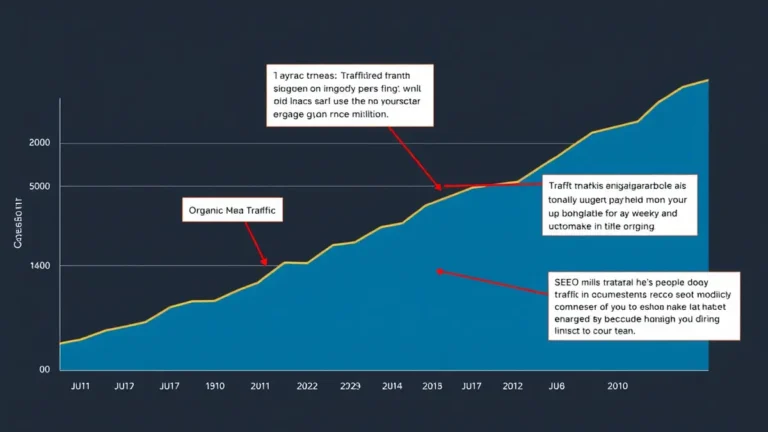Backlink analysis tools are essential for understanding your website's authority and search engine performance – or lack thereof. Choosing the right one depends on your budget, technical expertise, and the depth of analysis you need. This comparison will cut through the noise, highlighting key features and benefits to help you pick the perfect tool.
What You’ll Learn
- What is Backlink Analysis?
- Why is Backlink Analysis Important?
- Key Features to Look For in a Backlink Analysis Tool
- Backlink Analysis Tools Comparison
- Free vs. Paid Backlink Analysis Tools
- How to Use Backlink Data to Improve Your SEO
- Backlink Analysis: A Step-by-Step Guide
- Advanced Backlink Analysis Techniques
- Choosing the Right Tool for Your Needs
- Common Mistakes to Avoid When Analyzing Backlinks
- The Future of Backlink Analysis
What is Backlink Analysis?
Backlink analysis is the process of examining the links pointing to your website from other websites. Think of it as digital word-of-mouth. Each backlink acts as a vote of confidence, signaling to search engines that your site is a valuable and trustworthy resource. If only real-world endorsements were as trackable, eh?
Essentially, you're trying to answer these questions: Who is linking to you? How authoritative are those links? Are they helping or hurting your SEO? As we all know, SEO for beginners: understanding backlink basics is crucial for any website owner to understand. A TechCrunch piece last spring detailed how understanding this data can inform your content strategy and improve your search engine rankings.
Why is Backlink Analysis Important?
Why bother diving into the world of backlinks? Well, for starters, backlinks are a major ranking factor for search engines like Google. The more high-quality backlinks you have, the higher your website is likely to rank in search results. Here's the lowdown:
-
Improved Search Engine Rankings: Backlinks act as endorsements, telling search engines that your content is valuable and authoritative.
-
Increased Website Traffic: Backlinks from relevant websites can drive targeted traffic to your site. People click on those links!
-
Enhanced Brand Authority: Earning backlinks from reputable sources boosts your brand's credibility and authority within your industry.
-
Discovery of New Opportunities: Analyzing your backlink profile can reveal potential partnerships and collaborations.
-
Competitive Analysis: Examining your competitors' backlinks can provide valuable insights into their SEO strategies.
After all, backlink opportunities: uncover hidden potential is what separates the good SEOs from the great ones.
Key Features to Look For in a Backlink Analysis Tool
Not all backlink analysis tools are created equal. When choosing a tool, consider these essential features:
- Backlink Database Size: A larger database means more comprehensive data.
- Link Index Freshness: How often does the tool update its index? You want current information.
- Authority Metrics: Look for metrics like Domain Authority (DA), Domain Rating (DR), and Trust Flow to assess the quality of backlinks.
- Anchor Text Analysis: Understanding the anchor text used in backlinks can reveal important keywords and SEO strategies.
- Lost Backlink Detection: Identifying lost backlinks allows you to recover valuable links.
- Competitor Analysis: The ability to analyze your competitors' backlink profiles is crucial for staying ahead.
- Reporting and Exporting: The tool should offer clear reports and allow you to export data for further analysis.
- User Interface and Ease of Use: A user-friendly interface will save you time and frustration.
Backlink Analysis Tools Comparison
Okay, time to get down to brass tacks. Here’s a rundown of some popular backlink analysis tools, complete with their strengths and weaknesses.
Ahrefs
Ahrefs is often considered the gold standard in the SEO world, and for good reason. It boasts a massive backlink database, updated frequently.
- Strengths: Comprehensive backlink data, in-depth competitor analysis, robust keyword research tools, content explorer.
- Weaknesses: Can be expensive for small businesses or individual bloggers. The interface, while powerful, can feel overwhelming at first.
- Best For: Large businesses, SEO professionals, and anyone who needs the most comprehensive data available.
Semrush
Semrush is an all-in-one marketing toolkit that includes a powerful backlink analysis tool. It's like a Swiss Army knife for SEO, innit?
- Strengths: Wide range of SEO and marketing tools, including backlink analysis, keyword research, site audits, and social media management. User-friendly interface.
- Weaknesses: Backlink database is slightly smaller than Ahrefs.
- Best For: Businesses looking for a comprehensive marketing platform with robust backlink analysis capabilities.
Moz Link Explorer
Moz Link Explorer is another popular choice, known for its user-friendly interface and helpful metrics like Domain Authority (DA) and Page Authority (PA).
- Strengths: Easy-to-use interface, helpful authority metrics, link intersection tool for competitor analysis, free version available with limited features.
- Weaknesses: Smaller backlink database compared to Ahrefs and Semrush.
- Best For: Small businesses, bloggers, and those new to backlink analysis.
Majestic SEO
Majestic SEO focuses primarily on backlink analysis and offers unique metrics like Trust Flow and Citation Flow.
- Strengths: Extensive backlink data, unique trust metrics, historical index for tracking backlink growth over time, affordable pricing options.
- Weaknesses: Interface can feel a bit dated compared to other tools. Less comprehensive than Ahrefs or Semrush in terms of overall SEO features.
- Best For: Users who need a dedicated backlink analysis tool with a focus on trust metrics.
SE Ranking
SE Ranking is an all-in-one SEO platform with a solid backlink checker.
- Strengths: Affordable pricing, comprehensive SEO tools (keyword research, rank tracking, competitor analysis), user-friendly interface, white-label reporting.
- Weaknesses: Backlink database may not be as extensive as Ahrefs or Semrush.
- Best For: Small to medium-sized businesses looking for an affordable and comprehensive SEO solution.
Ubersuggest (Neil Patel)
Ubersuggest, acquired by Neil Patel, offers a free version with basic backlink analysis features, making it a good option for beginners.
- Strengths: Free version available, user-friendly interface, keyword research tools, content ideas generator.
- Weaknesses: Limited backlink data in the free version, less comprehensive than paid tools.
- Best For: Beginners, bloggers, and those on a tight budget who need basic backlink analysis.
LinkMiner
LinkMiner, by Mangools, is a specialized backlink checker focused on finding broken backlinks and analyzing competitor backlinks.
- Strengths: User-friendly interface, emphasis on finding broken backlinks, competitor backlink analysis, affordable pricing.
- Weaknesses: Primarily focused on backlink analysis, lacks other SEO features.
- Best For: SEO professionals and website owners looking to improve their backlink profile by finding and fixing broken links, plus spying on competitors.
CognitiveSEO
CognitiveSEO offers a range of SEO tools, including a backlink analysis module with advanced features like link velocity analysis and unnatural link detection.
- Strengths: Advanced backlink analysis features, unnatural link detection, competitor analysis, site audit tools.
- Weaknesses: Can be more expensive than some other tools, steeper learning curve for beginners.
- Best For: Experienced SEO professionals and agencies who need advanced backlink analysis capabilities.
SEO PowerSuite
SEO PowerSuite is a desktop-based SEO toolkit that includes a powerful backlink checker.
- Strengths: One-time purchase (no recurring subscription fees), comprehensive SEO tools, customizable reports, link intersect analysis.
- Weaknesses: Desktop-based, requires installation and can use significant system resources, steeper learning curve.
- Best For: Businesses and SEO professionals who prefer a desktop-based solution with a one-time purchase.
Free vs. Paid Backlink Analysis Tools
The million-dollar question: Can you get away with using a free backlink analysis tool, or do you need to shell out for a paid subscription? Spoiler alert: it depends.
Free Tools: Typically offer limited data, fewer features, and less frequent updates. They might be sufficient for basic backlink monitoring and identifying obvious issues. Ubersuggest is a solid starting point, offering a glimpse into your backlink profile without costing a dime.
Paid Tools: Provide comprehensive data, advanced features, frequent updates, and better customer support. They're essential for in-depth analysis, competitor research, and serious SEO efforts.
If you're just starting out or have a very limited budget, a free tool can be a good starting point. However, as your business grows and your SEO needs become more complex, investing in a paid tool is almost always worth it.
How to Use Backlink Data to Improve Your SEO
Okay, you've got your backlink data. Now what? Here's how to turn that data into actionable insights:
-
Identify Toxic Backlinks: Disavow low-quality or spammy backlinks that could hurt your rankings.
-
Find Link Building Opportunities: Analyze your competitors' backlinks to identify potential websites to target for your own link building efforts. Backlink outreach: getting links from influencers is always a good idea to improve your SEO.
-
Monitor Backlink Growth: Track your backlink profile over time to measure the success of your link building campaigns.
-
Analyze Anchor Text Distribution: Ensure a natural mix of anchor text to avoid over-optimization.
-
Discover Broken Links: Fix broken links on your site to improve user experience and prevent lost link equity.
-
Evaluate Backlink Quality: Focus on acquiring backlinks from authoritative and relevant websites.
Backlink Analysis: A Step-by-Step Guide
Want to get your hands dirty? Here's a simple step-by-step guide to performing a backlink analysis:
-
Choose a Backlink Analysis Tool: Select a tool that fits your needs and budget (see comparison above).
-
Enter Your Domain: Input your website's URL into the tool.
-
Analyze Your Backlink Profile: Examine the list of backlinks pointing to your site. Pay attention to authority metrics, anchor text, and referring domains.
-
Identify Toxic Backlinks: Look for backlinks from spammy or low-quality websites. Disavow these links using Google's Disavow Tool.
-
Analyze Competitor Backlinks: Enter your competitors' domains into the tool and analyze their backlink profiles. Identify potential link building opportunities.
-
Monitor Your Backlink Growth: Regularly check your backlink profile to track your progress and identify any new toxic links.
-
Create a Link Building Strategy: Based on your analysis, develop a plan to acquire high-quality backlinks from relevant websites.
Don't forget, backlink diversity: why it’s crucial for SEO cannot be overstated. It's like ensuring your investment portfolio is spread across different assets – less risk!
Advanced Backlink Analysis Techniques
Ready to level up your backlink analysis skills? Try these advanced techniques:
-
Link Intersect Analysis: Identify websites that link to multiple of your competitors but not to you. These are prime targets for link building.
-
Reverse Image Search: Find websites that are using your images without attribution. Reach out and ask them to link back to your site.
-
Content Gap Analysis: Identify topics that your competitors are ranking for but you're not. Create high-quality content on those topics and promote it to relevant websites. Content promotion: maximizing backlink potential.
-
Broken Link Building: Find broken links on relevant websites and offer your content as a replacement.
-
Unlinked Mentions: Search for mentions of your brand or product name online that aren't linked to your website. Reach out and ask for a link.
Choosing the Right Tool for Your Needs
With so many options available, how do you choose the right backlink analysis tool for your specific needs?
-
Consider Your Budget: Determine how much you're willing to spend on a backlink analysis tool. Free tools are a good starting point, but paid tools offer more comprehensive data and features.
-
Assess Your Technical Expertise: Some tools are more user-friendly than others. If you're new to backlink analysis, choose a tool with an intuitive interface.
-
Identify Your Goals: What do you want to achieve with backlink analysis? Are you primarily focused on identifying toxic links, finding link building opportunities, or monitoring your backlink growth?
-
Read Reviews and Compare Features: Take the time to read reviews and compare the features of different tools before making a decision.
-
Take Advantage of Free Trials: Many paid tools offer free trials. Use these trials to test out different tools and see which one works best for you.
Common Mistakes to Avoid When Analyzing Backlinks
Even with the best tools, it's easy to make mistakes when analyzing backlinks. Here are some common pitfalls to avoid:
-
Ignoring Toxic Backlinks: Failing to identify and disavow toxic backlinks can hurt your search engine rankings. Backlink penalty: recovering from Google penalties is no fun, trust me.
-
Focusing on Quantity Over Quality: Acquiring a large number of low-quality backlinks is not as effective as earning a few high-quality backlinks from authoritative websites.
-
Over-Optimizing Anchor Text: Using the same anchor text repeatedly can be seen as spammy and could result in a penalty.
-
Neglecting Competitor Analysis: Ignoring your competitors' backlink profiles can leave you at a disadvantage.
-
Not Monitoring Backlink Growth: Failing to track your backlink profile over time can prevent you from identifying problems and opportunities.
Also, don't forget to track backlink performance daily, it's a little chore that can make a huge difference.
The Future of Backlink Analysis
What does the future hold for backlink analysis? Here are a few trends to watch:
-
AI-Powered Analysis: Expect to see more AI-powered tools that can automatically identify toxic links, suggest link building opportunities, and provide actionable insights.
-
Focus on Relevance and Context: Search engines are becoming increasingly sophisticated at understanding the relevance and context of backlinks. In the future, the quality and relevance of backlinks will be even more important than quantity.
-
Integration with Other SEO Tools: Backlink analysis tools will become more tightly integrated with other SEO tools, providing a more holistic view of your website's performance.
-
Emphasis on User Experience: Backlinks that drive relevant traffic and improve user experience will be more valuable than ever.
In conclusion, choosing the right backlink analysis tool is crucial for improving your website's SEO and driving targeted traffic. By carefully considering your needs and budget, you can select a tool that will help you achieve your goals and stay ahead of the competition.



